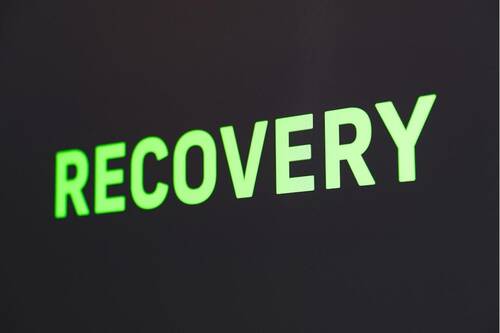
25 Feb Overcoming Stigma: Why Seeking Drug Rehab is a Sign of Strength
The battle against substance addiction is challenging, imbued with not only the struggle against the physical and psychological grip of substances but also against the societal stigma that proves to be a daunting adversary. The stigma surrounding drug rehabilitation is deeply entrenched in society, often painting those who seek help in a negative light. However, understanding the complexities of addiction and endorsing the courage it takes to seek help are vital to transforming perspectives. By pushing past misinformation and myths, we pave the way for a more empathetic and informed society. In this article, we delve into the nuances of the stigma attached to drug rehab and the myriad ways in which overcoming it is a testament to inner strength.
Breaking the Silence: Sharing Success Stories to Inspire Change
One of the most potent ways to combat the stigma of drug rehab is through the sharing of success stories. These narratives of triumph offer hope, shatter misconceptions and illuminate the realities of addiction and recovery. Each story underscores the transformative power of rehabilitation and the resilience inherent in the human spirit.
Success stories serve as a beacon for those who are still hesitant to seek help. By highlighting the journey of those who have walked the path of recovery, individuals can find the encouragement and motivation to empower themselves. It is an acknowledgment that while addiction is a part of their story, it does not define their entire identity or their future.
A New Found Life reclaimed through the process of drug rehab, carries with it invaluable lessons and experiences. In sharing these journeys, those in recovery can challenge prevailing biases and illustrate that rehabilitation and a return to a fulfilling life are within reach. Celebrating these victories amplifies the message that recovery is possible and worthy of pursuit.
The Psychology of Addiction and the Road to Recovery
The etiology of addiction is complex and interwoven with various psychological components that make the journey towards recovery unique for each individual. Addiction is recognized by professionals as a chronic disease, involving changes to the brain’s chemistry and function. These alterations affect an individual’s control over their substance use, despite awareness of its harmful consequences.
Understanding addiction as a chronic disease is fundamental in dismantling stigmas. Like other chronic diseases such as diabetes or hypertension, addiction requires long-term care and sometimes multiple episodes of treatment. Relapse can be part of the process, not a sign of failure, but an indication that treatment needs to be reinstated or adjusted.
The recovery process involves more than just abstaining from substances; it includes rehabilitation of the whole person. This entails various treatments, such as cognitive-behavioral therapy, medication-assisted treatment (MAT), and peer support groups, that address both the psychological dependency and the behavioral changes needed to sustain sobriety.
Seeking Drug Rehab: A Courageous Step Towards Wellness
Deciding to seek drug rehabilitation is an act of bravery that deserves recognition and support. The journey toward sobriety begins with acknowledging the issue at hand, requiring individuals to confront their vulnerabilities and trust in the possibility of change. This self-awareness demonstrates incredible strength and the willingness to pursue a healthier path.
Drug rehab offers a structured environment where individuals can identify the root causes of their addiction. The therapeutic settings enable insight and provide coping mechanisms to deal with triggers and cravings, ultimately transforming lives. With comprehensive support from medical professionals and peers, rehab becomes a safe space for healing and growth.
How Society Benefits From Supporting Addiction Recovery
When society fosters a supportive environment for drug rehabilitation, the benefits extend far beyond the individual. Addiction recovery contributes to safer communities, reduces the burden on the healthcare system, and fosters healthier family dynamics. This ripple effect can be seen in various aspects of societal functioning, from the economy to public health.
Recovery from addiction often leads to improved job performance and reduced absenteeism, contributing to a more productive workforce. Economically, support for rehabilitating individuals correlates with reduced costs stemming from drug-related crimes, law enforcement interventions, and incarceration rates. These savings can then be reallocated to further support public health initiatives, education, and prevention efforts.
Overall, the journey from the throes of addiction to the triumphs of recovery is a testament to human resilience and determination. Understanding, compassion, and shared success stories are invaluable in shifting societal views and supporting those in their pursuit of a healthier, substance-free life. By breaking the silence and the stigma, society as a whole can grow stronger and more empathetic, fostering environments that encourage rehabilitation and congratulate the courage it takes to embark on such a path.
More information:
—————————————-
- If you or someone you know is struggling or in crisis, help is available. Call or text 988 or chat at org. To learn how to get support for mental health, drug or alcohol conditions, visit FindSupport.gov. If you are ready to locate a treatment facility or provider, you can go directly to FindTreatment.govor call 800-662-HELP (4357).
- US. veterans or service members who are in crisis can call 988 and then press “1” for the Veterans Crisis Line. Or text 838255. Or chat online.
- The Suicide & Crisis Lifeline in the U.S. has a Spanish language phone line at 1-888-628-9454 (toll-free).
The information on MedicalResearch.com is provided for educational purposes only, and is in no way intended to diagnose, cure, or treat any medical or other condition.
Some links are sponsored. Products, images and services are not endorsed.
Always seek the advice of your physician or other qualified health and ask your doctor any questions you may have regarding a medical condition. In addition to all other limitations and disclaimers in this agreement, service provider and its third party providers disclaim any liability or loss in connection with the content provided on this website.
Last Updated on February 25, 2025 by Marie Benz MD FAAD
